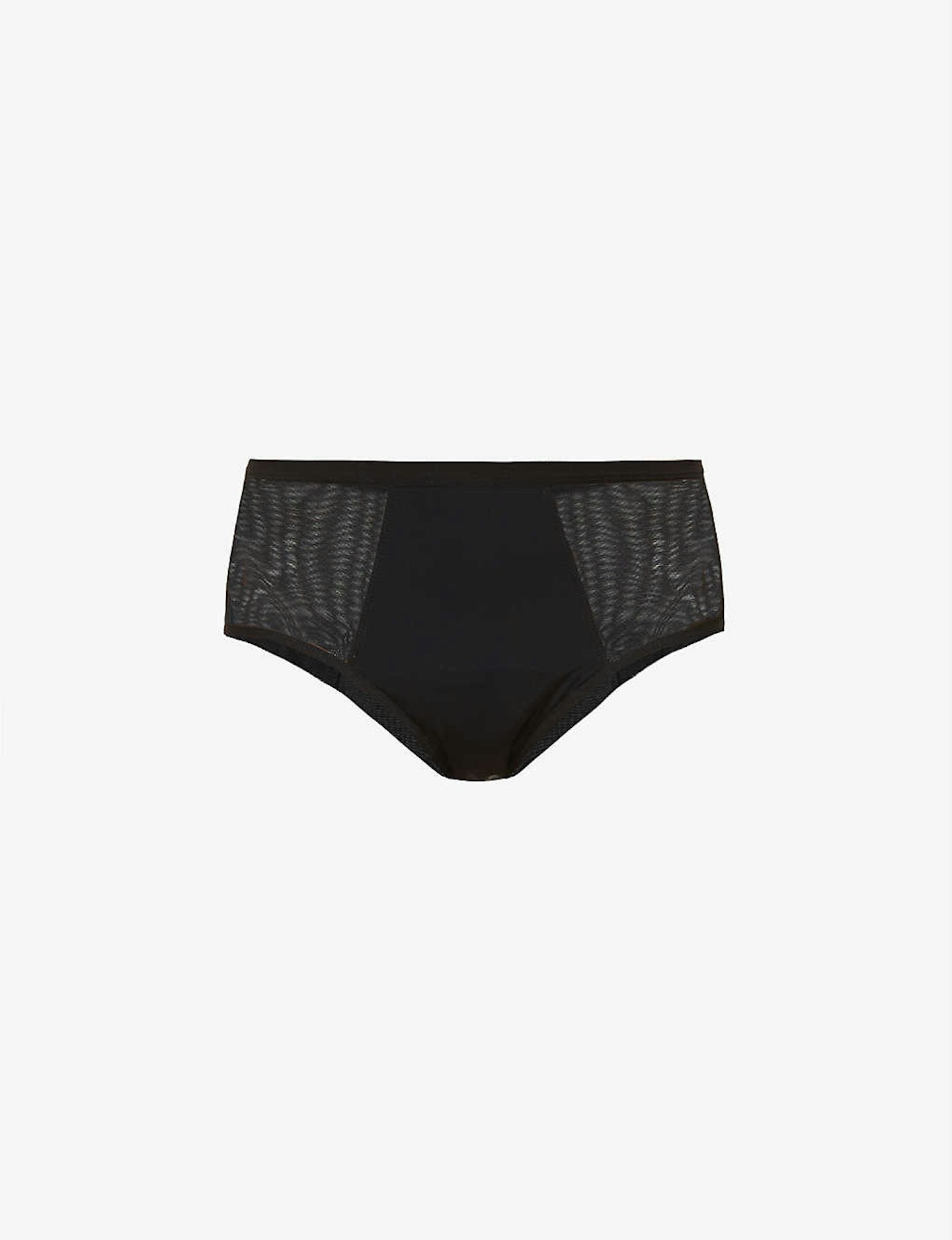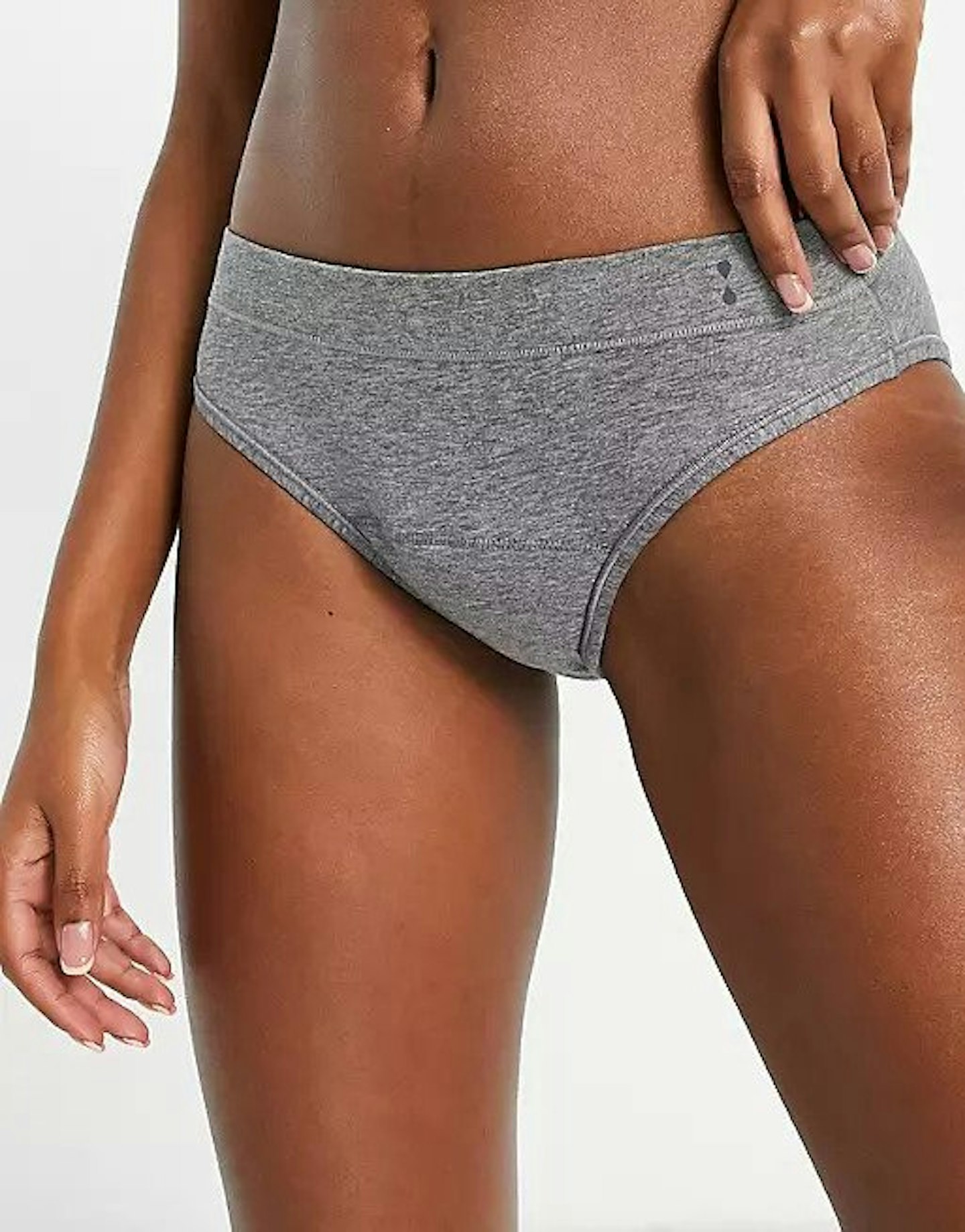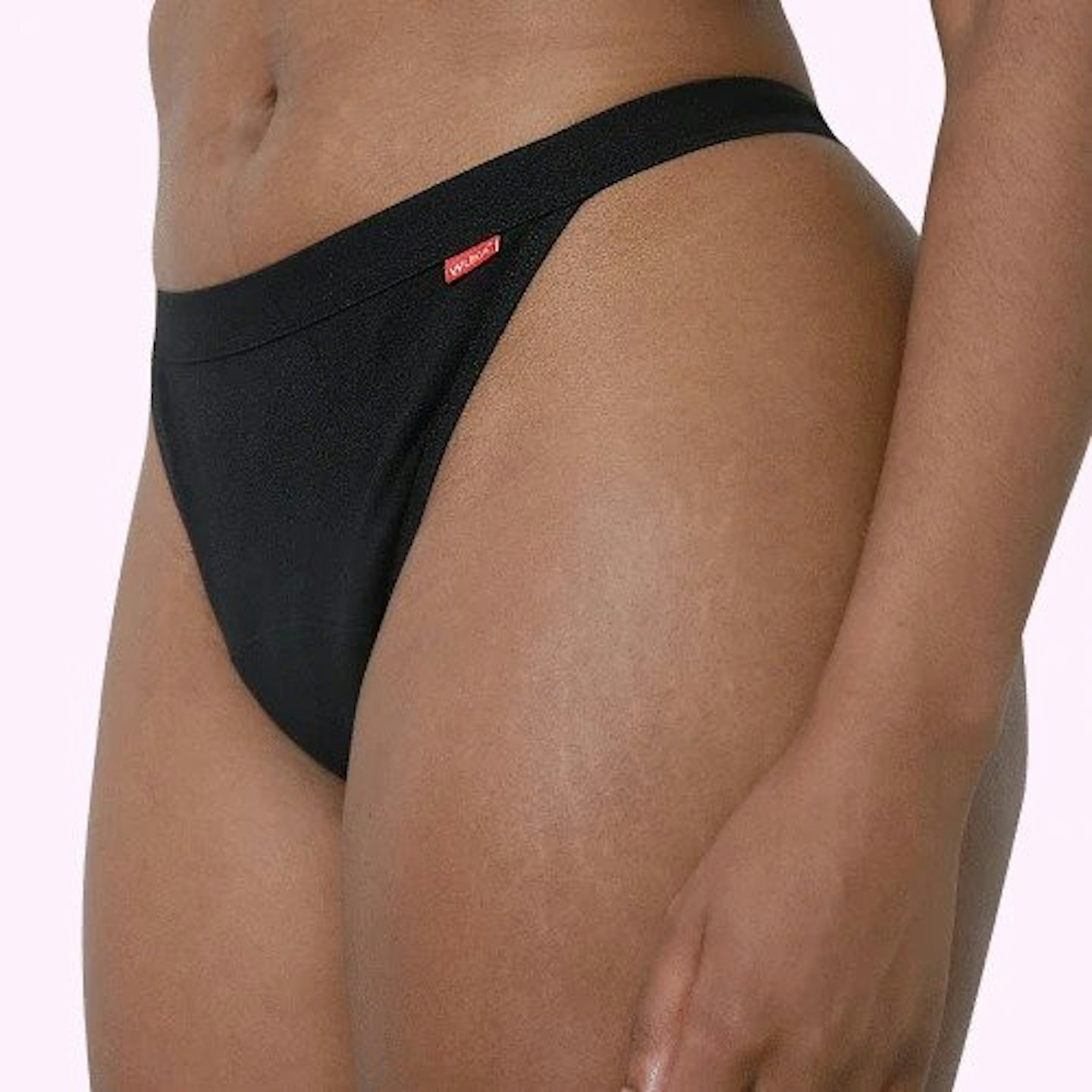In And Just Like That's latest episode Charlotte joins Miranda and Carrie for lunch and reveals that she thinks she has entered the menopause. 'I haven't got my period in four months so I think I'm finally in menopause,' she says. 'Welcome to the club, prepare to be sweaty,' says Miranda. And just like that...the menopause was referred to as something perfectly normal. Refreshing, no? The menopause stereotype has long been laboured on-screen - mood swings, severe hot flushing, you know the drill. While no experience of menopause is the same, it was a relief to see it discussed by three characters who seemed so comfortable with it.
Then came the 'flash period'. Charlotte spends the majority of the episode walking around in a fate-tempting all-white outfit and, just when she thinks she's 'done with it', she gets her period. In high school levels of solidarity Carrie and Miranda rush to her aid, tying a sweater around her waist to hide the blood patch, and ushering her to the bathroom. It's Miranda who dubs it a 'flash period' and cites it as a usual symptom of the menopause, and we couldn't help but wonder...why has nobody told us about flash periods before?
There is still a taboo around openly discussing periods in general. Grazia's Senior Editor Maria Lally remembers, 'A few years ago, when I was health editor at Grazia and working in its predominately female office, during my period I would sneak a tampon up my sleeve and surreptitiously head off to the toilets' and an that's still the norm today.
A recent YouGov poll for ActionAid found that one in five women under 40 are embarrassed to talk about their period with friends, and 50% are ashamed of mentioning it to their female boss (75% if they have a male boss).
When it comes to addressing the menopause and the impact it has on our bodies as we age, though, the conversation seems to be opening up.
We asked Dr Sam Brown, GP and menopause specialist at the female-led Bronte Clinic, everything you need to know about these 'flash periods' and the perimenopause.
What Is Perimenopause?
Perimenopause can begin years before the menopause officially starts, when your ovaries begin to produce fewer hormones. This seems to be where And Just Like That's Charlotte is at. 'The average length of the perimenopause phase is four years however for some, this stage can last a few months, or even as long as 10 years,' says Dr Brown. 'During the perimenopause – which commonly affects those in their 40’s but can arrive earlier or later, women still have periods and can still get pregnant, but within the last 1-2 years of this transition, the decrease in oestrogen speeds up and many women experience menopause symptoms.'
The average age associated with menopause, which is defined as a year since your last period, is 51, but 1 in 100 women will be perimenopausal before the age of 40
What Are Flash Periods?
The drop in hormones associated with the perimenopause can cause an irregularity in your cycle, resulting in flash periods - unannounced, unexpected of bouts of bleeding that can vary from spotting, to heavier flows.
What Are The Most Common Symptoms Of Perimenopause?
There are many symptoms associated with the perimenopause, and it's important to recognise the signs.
'It is not all hot flushes!' reminds Dr Brown, 'Although these are very common with 70-80% of women, who often find them distressing and disruptive to sleep.'
Mood changes are very common. And other symptoms can include vaginal dryness and loss of libido, tiredness and insomnia, joint pain and muscle tension and rarer symptoms include a burning mouth or dry eyes.'
How Can I Help Ease The Symptoms Of The Perimenopause?
'Recognising the symptoms is the first step but it can be difficult to do. It is important to speak with a doctor and make sure that your symptoms, such as tiredness or sweats, are not due to other conditions. Once you've done that, consider:'
-
Self Care: 'Women are often juggling a lot at this time of life but self-care and looking at your lifestyle is so important. Women need to prioritise this. Factor in time to consider meditative, creative and active pursuits, or anything that you enjoy that will relax your mind and help focus on calm.'
-
Exercise: 'Strength exercises are important as you can start to lose muscle mass. Supplements like calcium, vitamin D or magnesium, eating healthily and reducing alcohol can all help.'
-
Talk: 'Chat through how you are feeling with friends like Charlotte does in And Just Like That. It helps to realise that everyone goes through this and everyone has a different experience of it. Not everyone's journey is the same. You are not alone and your female friends and colleagues can be a great support. CBT (cognitive behavioural therapy) can also be helpful both with mood changes but also hot flushes and changing our mindset to view ageing and experience as a positive thing!'
-
HRT ( hormone replacement therapy): 'This can be very helpful to relieve symptoms and is often under-prescribed. For most women the benefits outweigh the risks. But it is important to discuss this with a doctor and to take this medication - usually body-identical oestrogen given through the skin alongside progesterone - alongside the lifestyle measures above. If you feel you are getting "fobbed off" by your GP then you can ask if there is a women’s health specialist at your practice who can help. Tracking symptoms on the Balance app can help you prepare for your doctor’s appointment'
When Should I Seek Medical Advice From My Doctor?
Always be sure to check in with your physical and mental health, if something doesn't feel right, speak to your doctor. 'If you are not feeling yourself then it is a good idea to start to track your symptoms and to book in with your doctor to discuss them. A GP should be your first port of call, but if you need more specialist advice, menopause specialists like The Bronte Clinic are available both on the NHS and privately. You can also find a list of recommended clinics on The British Menopause Society website.'
Shop: Wary Of 'Flash Periods'? Meet Period Pants
SHOP: The Best Flash Period-Proof Pants
 1 of 3
1 of 3PANTYS, Hot Pant high-rise stretch-woven period briefs, £34.00
Sustainable, period underwear brand Pantys offers quick-drying, and leak-proof, breathable underwear, designed to absorb anything from menstrual blood and to sweat and bladder leaks.
 2 of 3
2 of 3Thinx, For All Organic Cotton Period Proof Bikini Brief With Super Absorbency , £18
Replace single-use pads and tampons with this discreet back-up brief with that additional just-in-case protection.
 3 of 3
3 of 3WUKA, Basics Thong, £12
Perfect for light flows, this thong brief is almost undetectable under clothing, getting rid of those pesky visible panty lines while still being absorbent and comfortable.
READ MORE: How Understanding Your Periods Could Get You That Next Promotion
